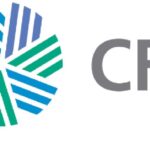A Code of Ethics is a set of guiding principles designed to help individuals within an organization make decisions based on ethical standards and values. It provides a framework for employees, executives, and stakeholders to understand what is considered acceptable behavior within the company, ensuring that all actions are aligned with the organization’s values, legal obligations, and societal expectations. A strong code of ethics promotes integrity, transparency, and accountability, which are crucial for long-term business success.
Key Takeaways
- A Code of Ethics outlines the ethical standards and principles that guide the behavior of individuals within an organization.
- It helps build trust with customers, employees, investors, and other stakeholders by ensuring transparency and accountability.
- Example: A company may include a Code of Ethics that prohibits corruption and outlines the process for reporting unethical behavior.
What is a Code of Ethics?
A Code of Ethics is a document that lays out the values, principles, and rules that guide the professional behavior of members within an organization. It serves as a roadmap for making decisions that align with both legal requirements and moral principles. Codes of ethics are crucial for maintaining a company’s reputation, ensuring that employees and leaders adhere to high standards of conduct, and minimizing risks associated with unethical behavior.
Typically, the code will include guidelines on honesty, integrity, fairness, respect for others, and the handling of conflicts of interest. It may also address more specific areas such as workplace harassment, environmental responsibility, data privacy, and compliance with industry regulations.
The Importance of a Code of Ethics
- Promotes Ethical Decision-Making: A code of ethics helps individuals within an organization make decisions that align with the company’s core values. It provides clear guidelines for handling situations that may involve conflicts of interest, ethical dilemmas, or legal requirements.
- Builds Trust and Reputation: When employees and leaders follow an ethical code, it enhances the company’s reputation with customers, investors, and the public. Trust is a key component of business relationships, and a code of ethics fosters an environment where trust can thrive.
- Ensures Legal Compliance: Many industries have strict regulations that govern ethical conduct. A well-defined code of ethics helps organizations comply with these regulations, preventing legal issues related to misconduct.
- Encourages Accountability and Transparency: A code of ethics creates an environment of accountability. Employees know that their actions are being guided by a set of standards, and they are encouraged to report unethical behavior when they observe it.
Key Components of a Code of Ethics
- Core Values: These are the fundamental principles that define the ethical behavior expected from employees. They typically include values such as honesty, integrity, fairness, respect, and responsibility.
- Compliance and Legal Obligations: The code should outline the importance of following all applicable laws and regulations. This includes industry-specific laws, anti-corruption laws, and labor laws.
- Conflict of Interest Policy: It is important to address situations where employees or leaders may face a conflict between their personal interests and their responsibilities to the company. A clear policy on conflicts of interest helps ensure that personal interests do not interfere with business decisions.
- Whistleblower Protection: A good code of ethics encourages employees to report unethical behavior without fear of retaliation. Whistleblower protection ensures that individuals who raise concerns are not penalized for speaking out.
- Sustainability and Social Responsibility: Many modern codes of ethics now address the company’s commitment to sustainability, environmental protection, and social responsibility. These sections are increasingly important as companies are expected to contribute positively to society.
Example of a Code of Ethics in Action
Consider a technology company that has developed a comprehensive Code of Ethics that emphasizes honesty, fairness, and respect for privacy. This code includes specific guidelines on how employees should handle customer data, ensuring that personal information is kept secure and confidential. If an employee is faced with a situation where they are offered a bribe to leak customer information, they can refer to the code and recognize that such behavior is unethical and against company policy. The company may also have a whistleblower system in place for employees to report any such misconduct anonymously.
Enforcing a Code of Ethics
Having a code of ethics is not enough; it must be enforced. An organization must ensure that its employees understand the code and are held accountable for adhering to it. Training programs, regular reviews, and clear disciplinary actions for violations help reinforce the ethical standards within the company. Leadership plays a critical role in modeling ethical behavior, as employees often take cues from executives and managers.
A Code of Ethics is a vital tool that helps ensure that an organization operates with integrity and transparency. It fosters a positive corporate culture, encourages ethical decision-making, and helps build trust with stakeholders. By creating and adhering to a robust code of ethics, companies can mitigate risks, avoid legal issues, and establish a reputation as a responsible, ethical business.





